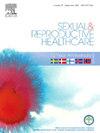Navigating child adoption decision among women with infertility in Southern Ghana
IF 1.7
3区 医学
Q3 PUBLIC, ENVIRONMENTAL & OCCUPATIONAL HEALTH
引用次数: 0
Abstract
The traditional Ghanaian society is pro-natal, with childbearing as the ultimate purpose of marriage. However, infertility may impede this purpose, leading to the need for child adoption among couples. This study explored child adoption decisions among women with infertility in Southern Ghana. A qualitative descriptive exploratory design was used. Purposive and snowball sampling techniques were used to recruit eligible participants. Overall, 14 women with infertility were interviewed. Analyses of the data were conducted using content analysis after audio-recorded interviews were transcribed verbatim. The findings suggested that to navigate the decision to adopt a child in Southern Ghana, there are key factors and environmental factors influencing the decision of these women. The study revealed that child adoption is associated with stigma, and some cultural beliefs, which were described as impediments to their decision-making process. The findings suggest that discrimination, stigma, and cultural beliefs, are the obstacles to child adoption in Southern Ghana. As a result, there is a need for community engagement, particularly with traditional and religious leaders, on child adoption issues in Ghana.
引导加纳南部不孕妇女的儿童收养决定
传统的加纳社会是亲产的,以生育为婚姻的最终目的。然而,不孕症可能阻碍这一目的,导致夫妇之间需要收养孩子。本研究探讨了加纳南部不孕妇女收养儿童的决定。采用定性描述性探索性设计。采用目的性和滚雪球抽样技术招募符合条件的参与者。总共采访了14名不孕妇女。在逐字记录访谈录音后,采用内容分析方法对数据进行分析。研究结果表明,在加纳南部,决定收养孩子的关键因素和环境因素会影响这些妇女的决定。研究表明,收养儿童与耻辱和一些文化信仰有关,这些被描述为他们决策过程的障碍。调查结果表明,歧视、耻辱和文化信仰是加纳南部儿童收养的障碍。因此,在加纳的儿童收养问题上,需要社区参与,特别是与传统和宗教领袖的参与。
本文章由计算机程序翻译,如有差异,请以英文原文为准。
求助全文
约1分钟内获得全文
求助全文
来源期刊

Sexual & Reproductive Healthcare
PUBLIC, ENVIRONMENTAL & OCCUPATIONAL HEALTH-
CiteScore
2.70
自引率
5.60%
发文量
73
审稿时长
45 days
 求助内容:
求助内容: 应助结果提醒方式:
应助结果提醒方式:


